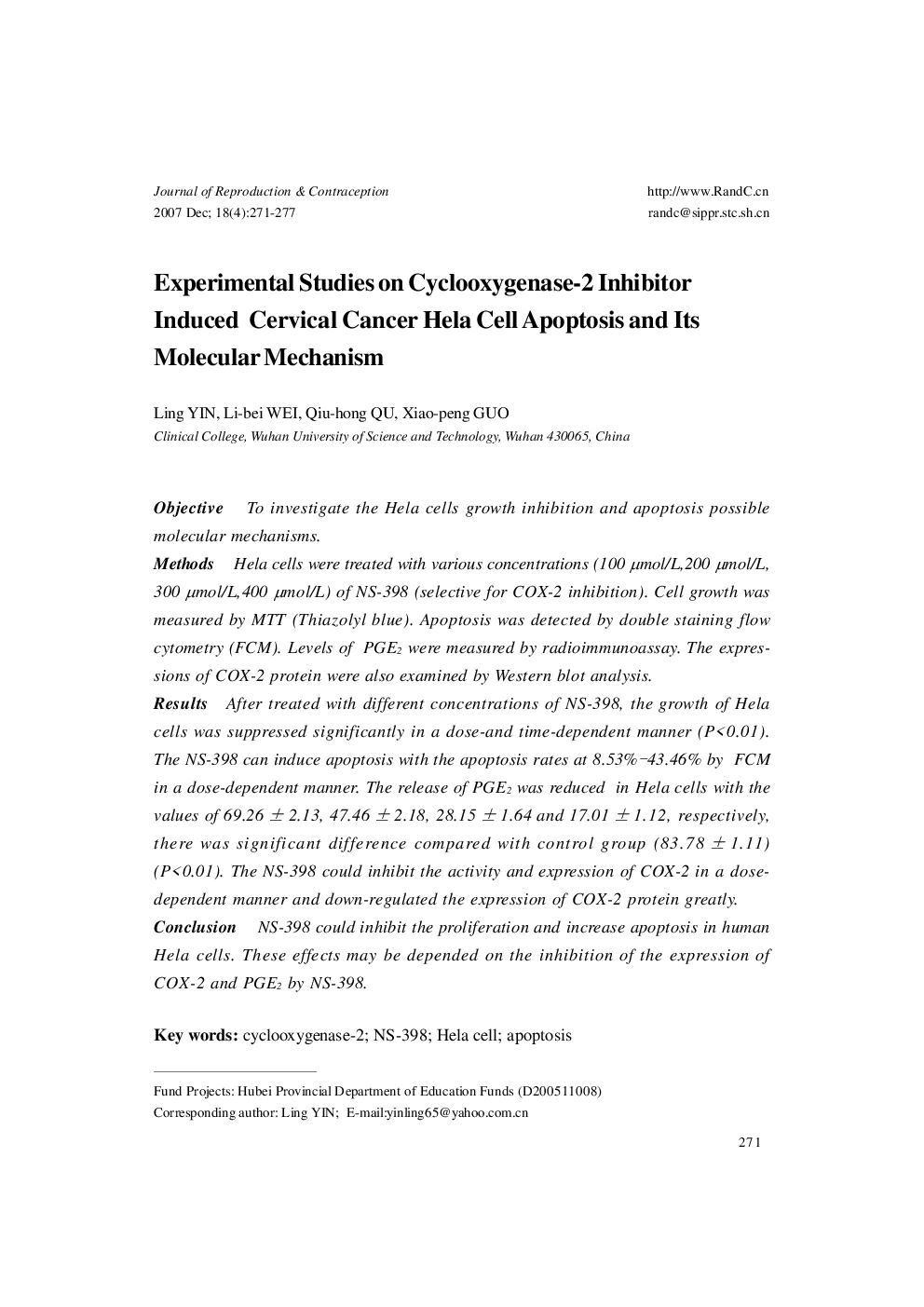| Article ID | Journal | Published Year | Pages | File Type |
|---|---|---|---|---|
| 3961052 | Journal of Reproduction and Contraception | 2007 | 8 Pages |
ObjectiveTo investigate the Hela cells growth inhibition and apoptosis possible molecular mechanisms.MethodsHela cells were treated with various concentrations (100 μmol/L, 200 μmol/L, 300 μmol/L, 400 μmol/L) of NS-398 (selective for COX-2 inhibition). Cell growth was measured by MTT (Thiazolyl blue). Apoptosis was detected by double staining flow cytometry (FCM). Levels of PGE2 were measured by radioimmunoassay. The expressions of COX-2 protein were also examined by Western blot analysis.ResultsAfter treated with different concentrations of NS-398, the growth of Hela cells was suppressed significantly in a dose-and time-dependent manner (P<0.01). The NS-398 can induce apoptosis with the apoptosis rates at 8.53%-43.46% by FCM in a dose-dependent manner. The release of PGE2 was reduced in Hela cells with the values of 69.26 ± 2.13, 47.46 ± 2.18, 28.15 ± 1.64 and 17.01 ± 1.12, respectively, there was significant difference compared with control group (83.78 ± 1.11) (P<0.01). The NS-398 could inhibit the activity and expression of COX-2 in a dose-dependent manner and down-regulated the expression of COX-2 protein greatly.ConclusionNS-398 could inhibit the proliferation and increase apoptosis in human Hela cells. These effects may be depended on the inhibition of the expression of COX-2 and PGE2 by NS-398.
